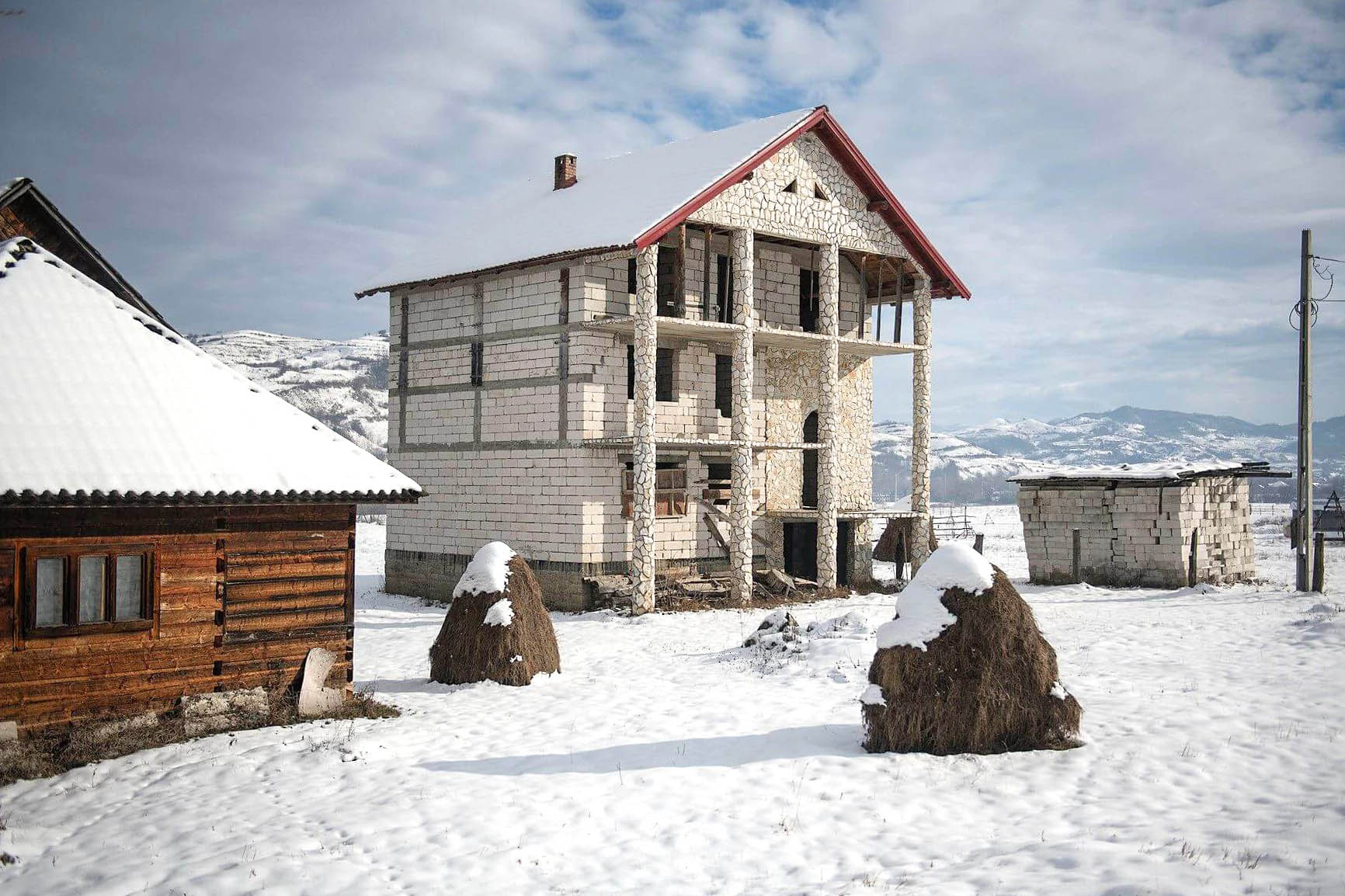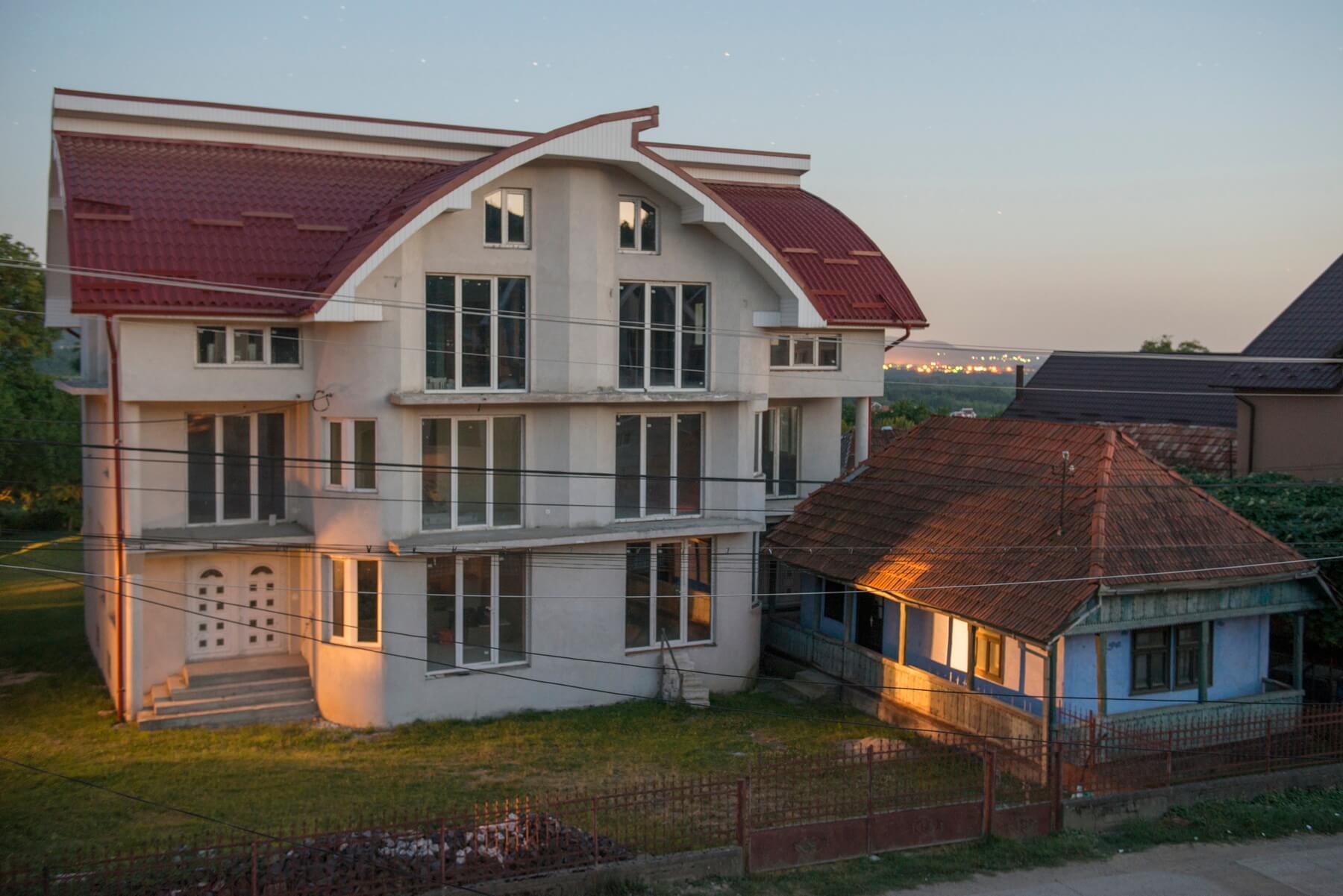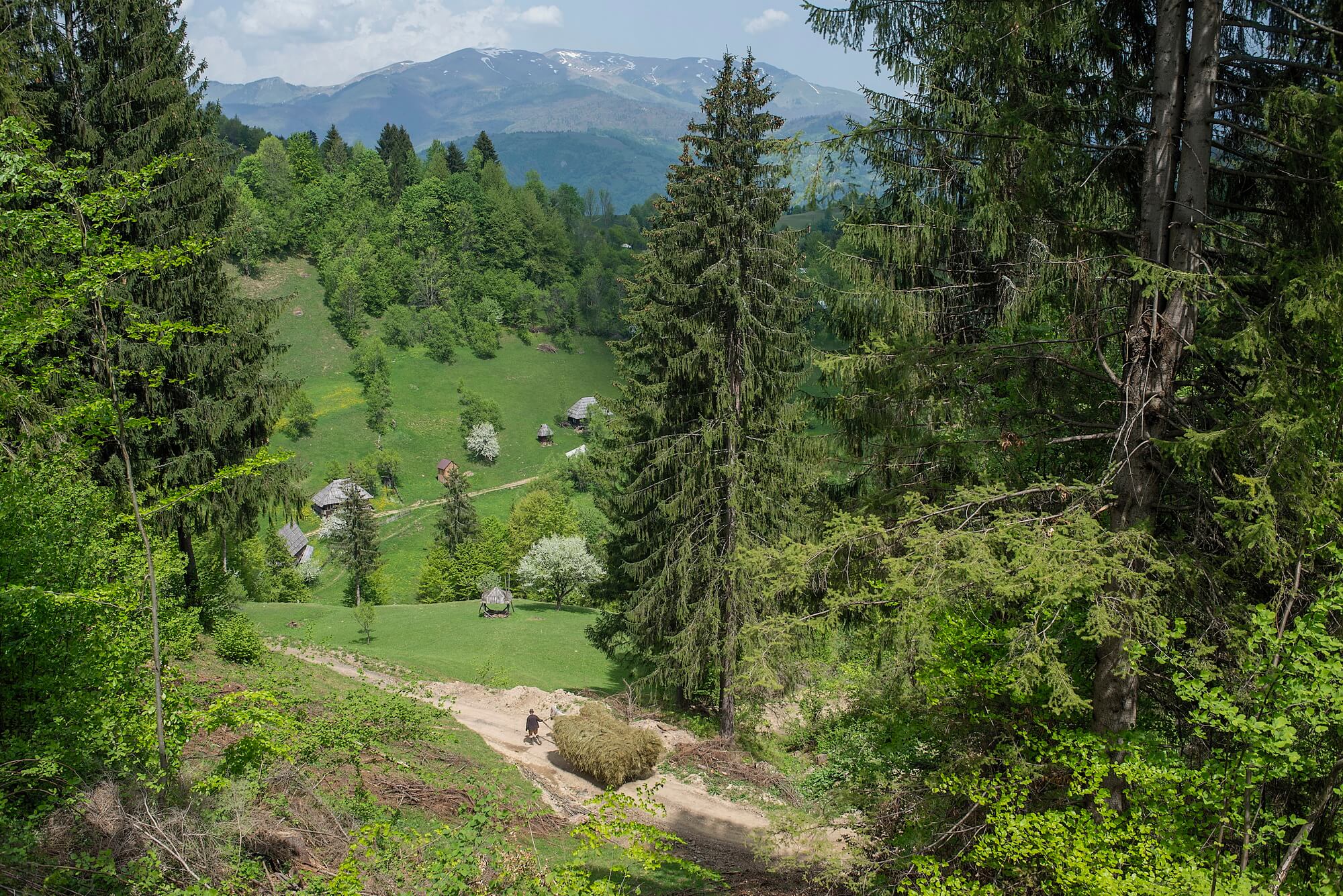
Vedere generală.
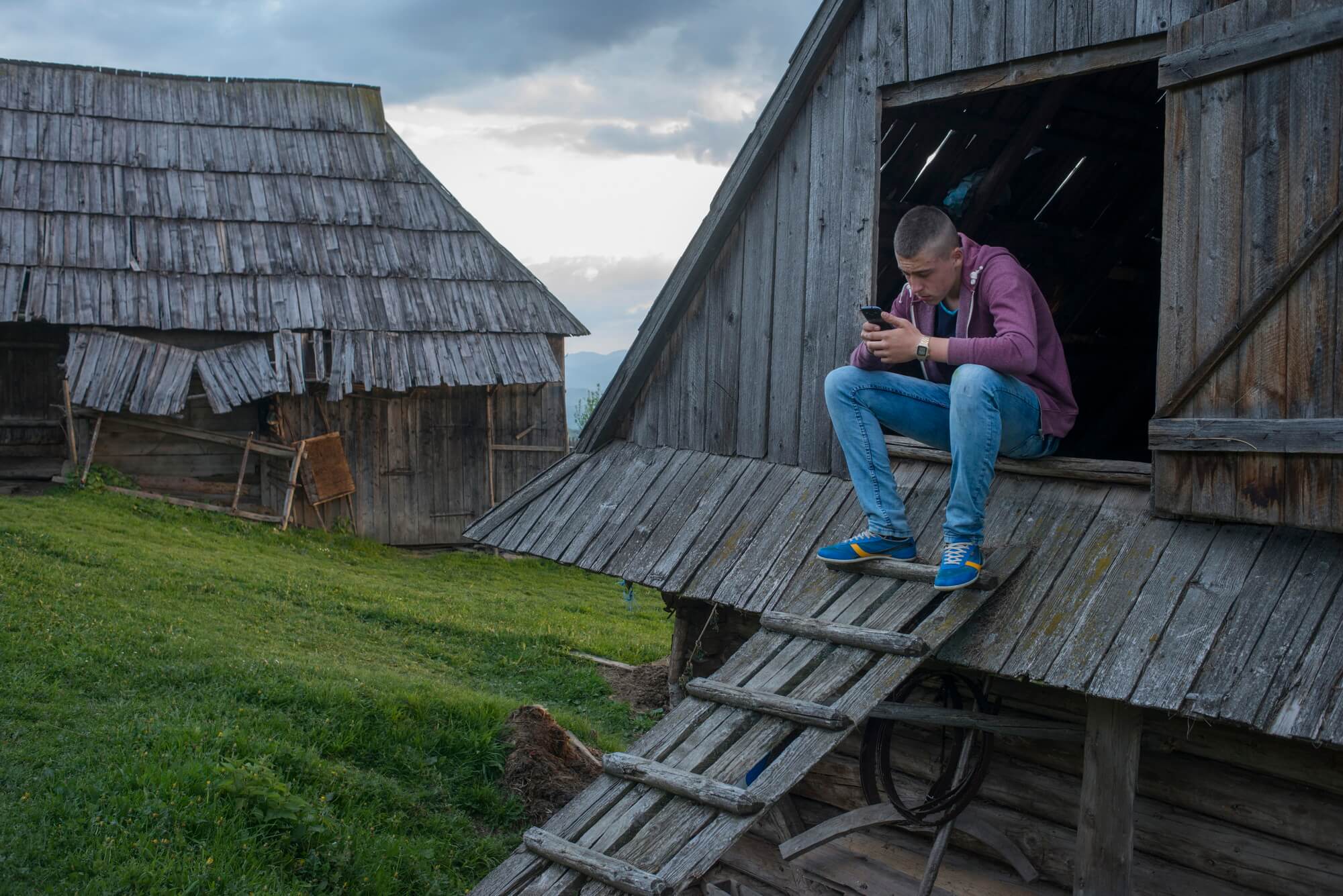
Vasile stă pe Facebook cu prietenii lui, urcat pe o scară unde are semnal mai puternic pentru date
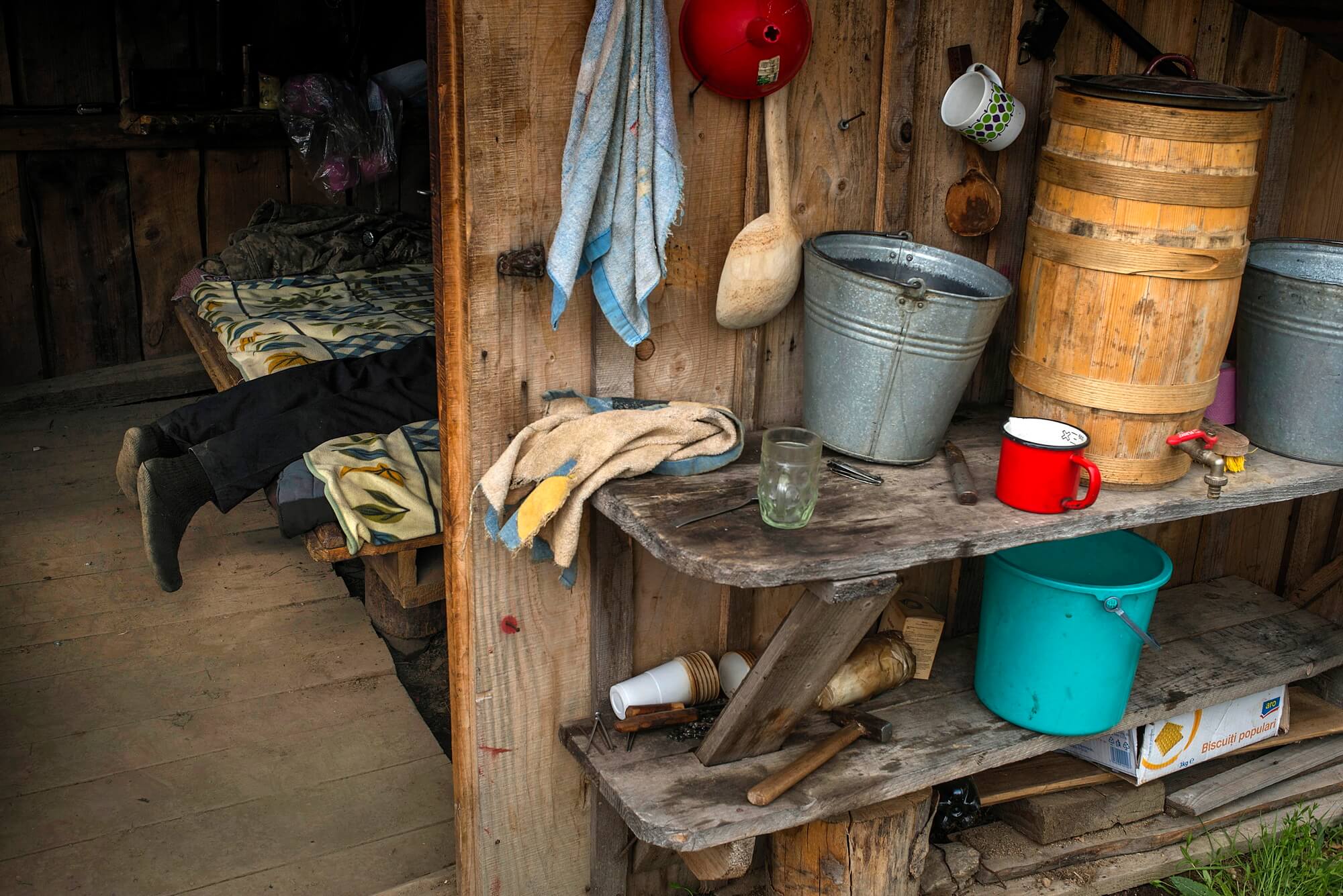
Un cioban se odihnește la prânz. La stână munca începe de la 4 dimineața și se termină noaptea
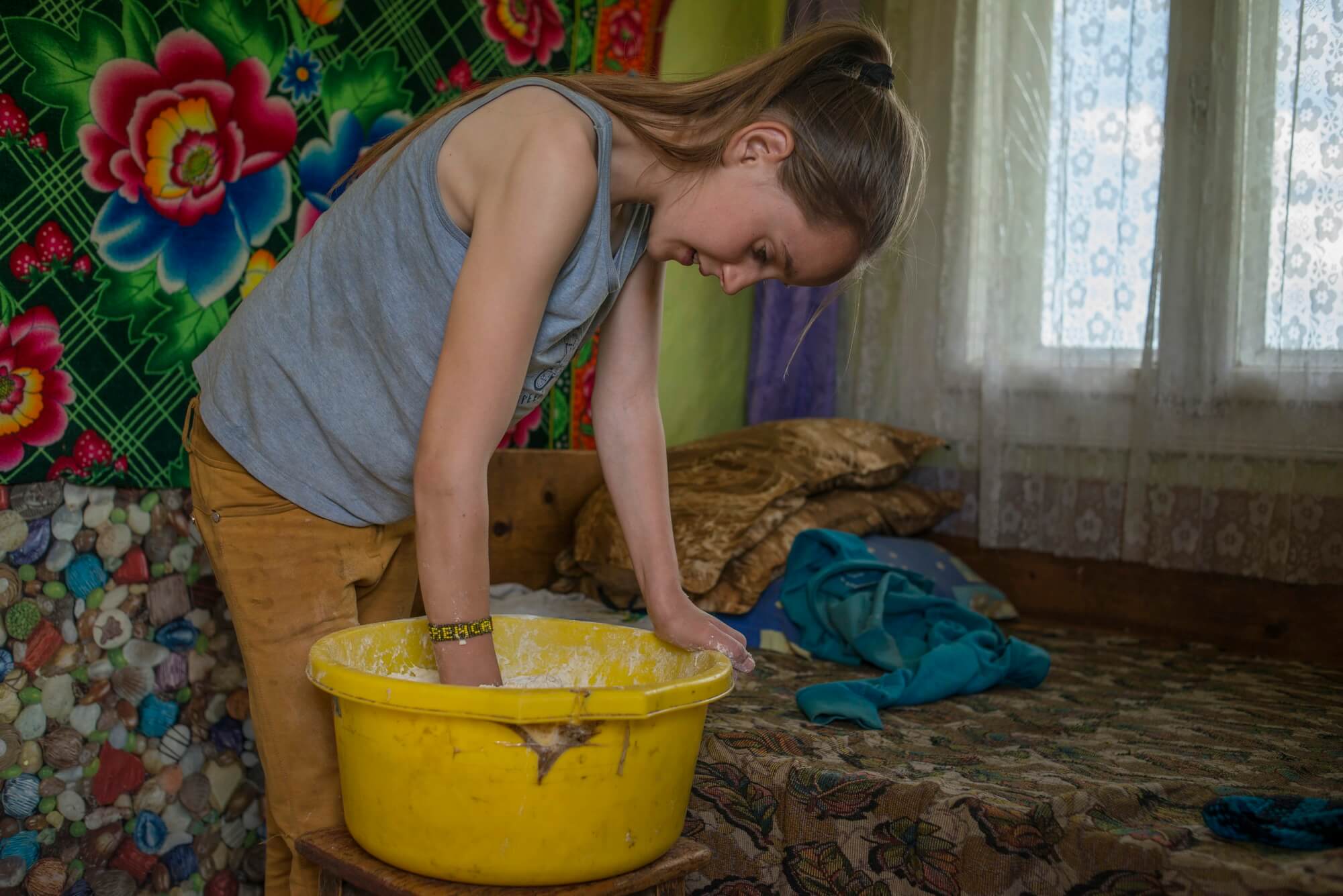
Irina, 11 ani, frământă aluatul pentru pâine
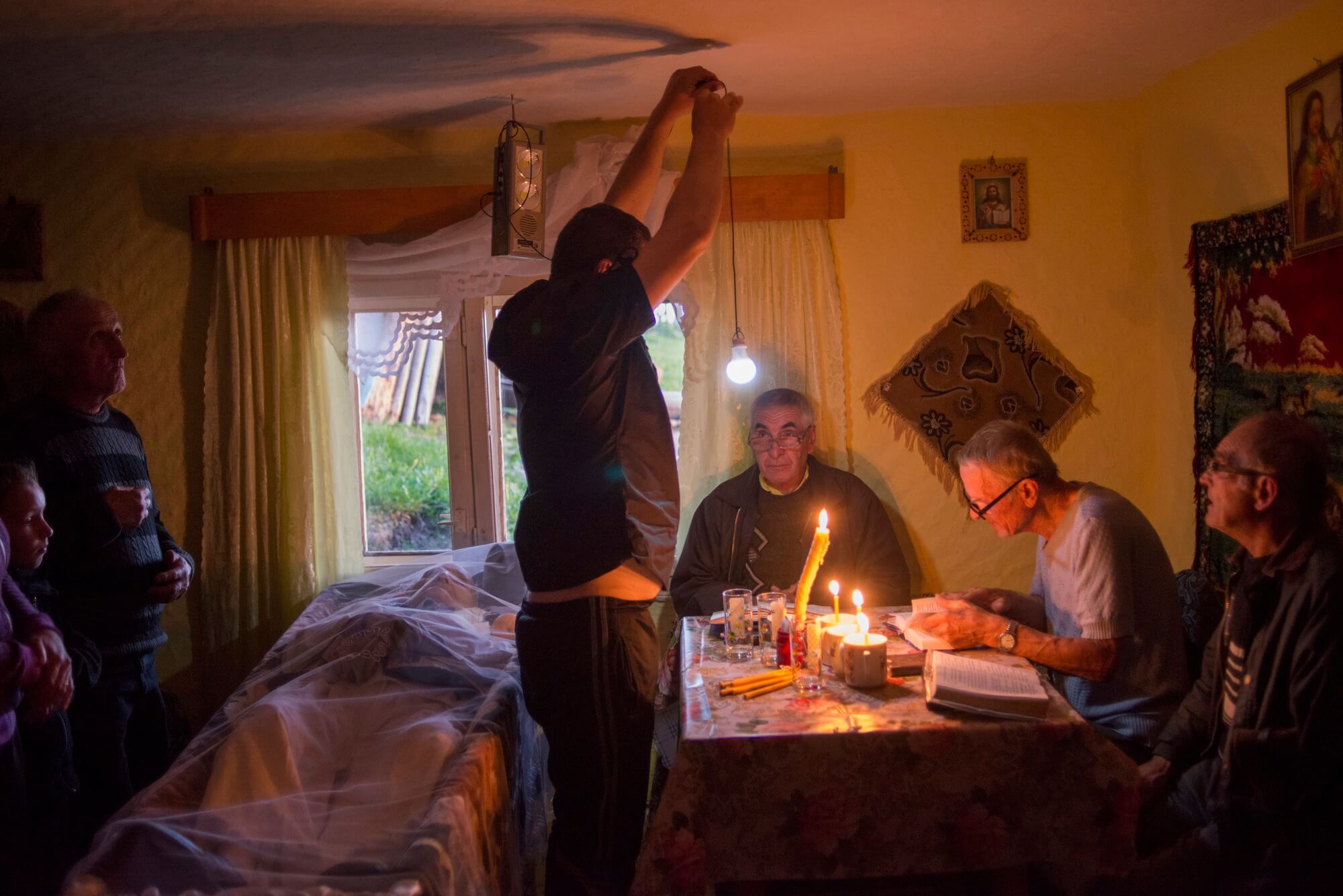
Preotul citește dintr-un caiet în care rudele răposatului au scris diverse nume ce trebuie pomenite la slujba de înmormântare.
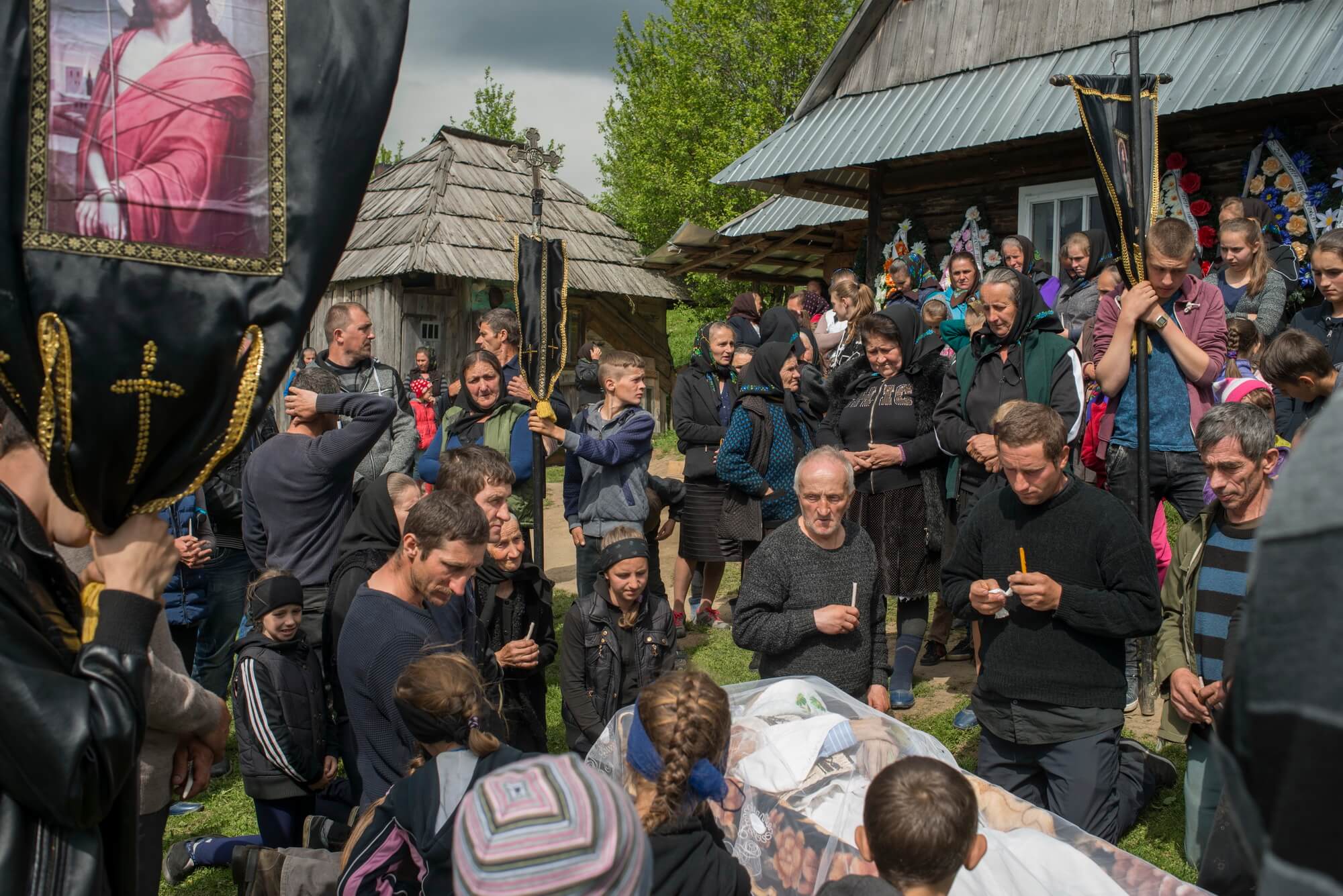
Slujba pentru Miron Ghibuș, decedat la 82 de ani.
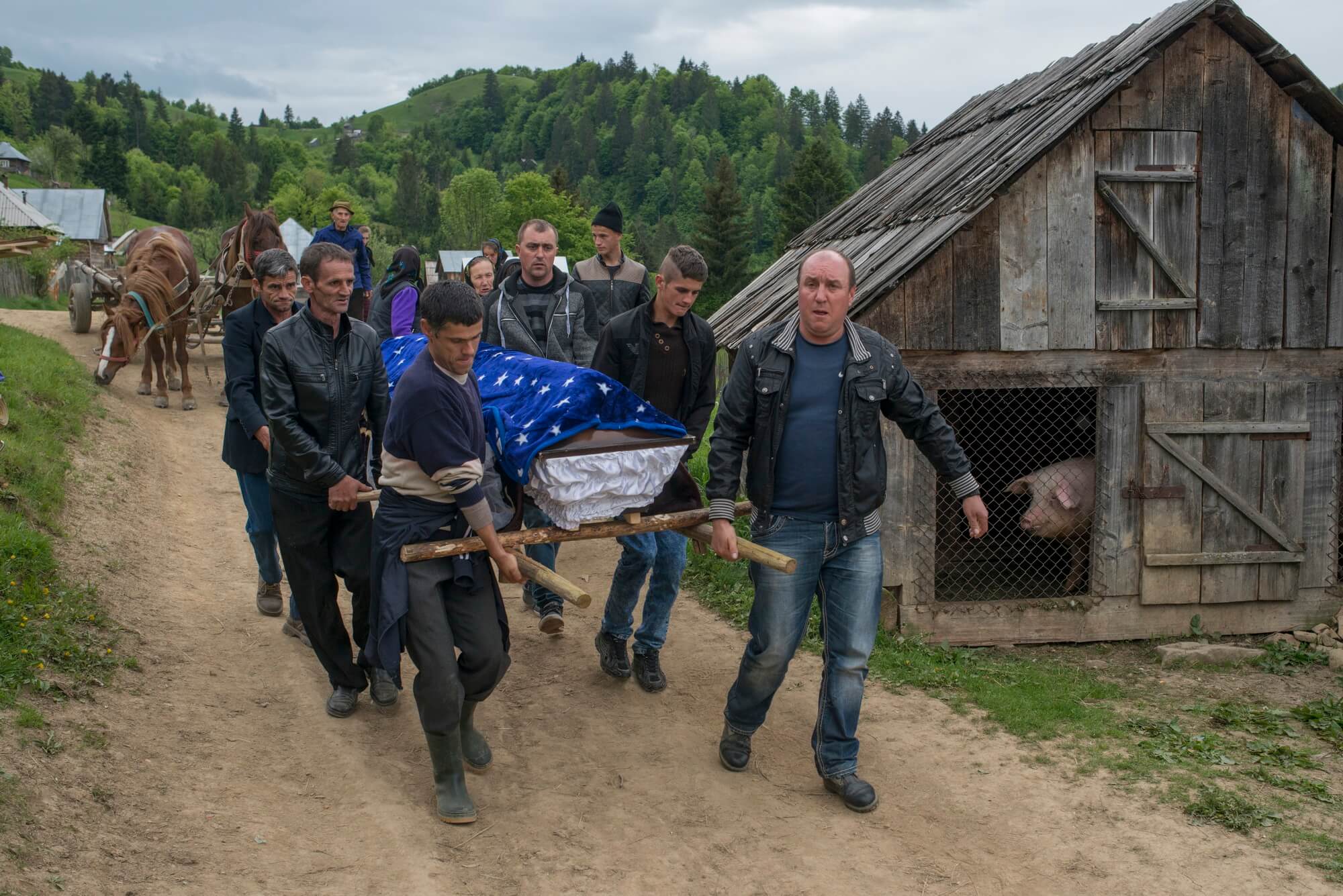
Sicriul a fost adus la groapă cu căruța, iar unde drumul a devenit prea îngust a fost cărat de rude.
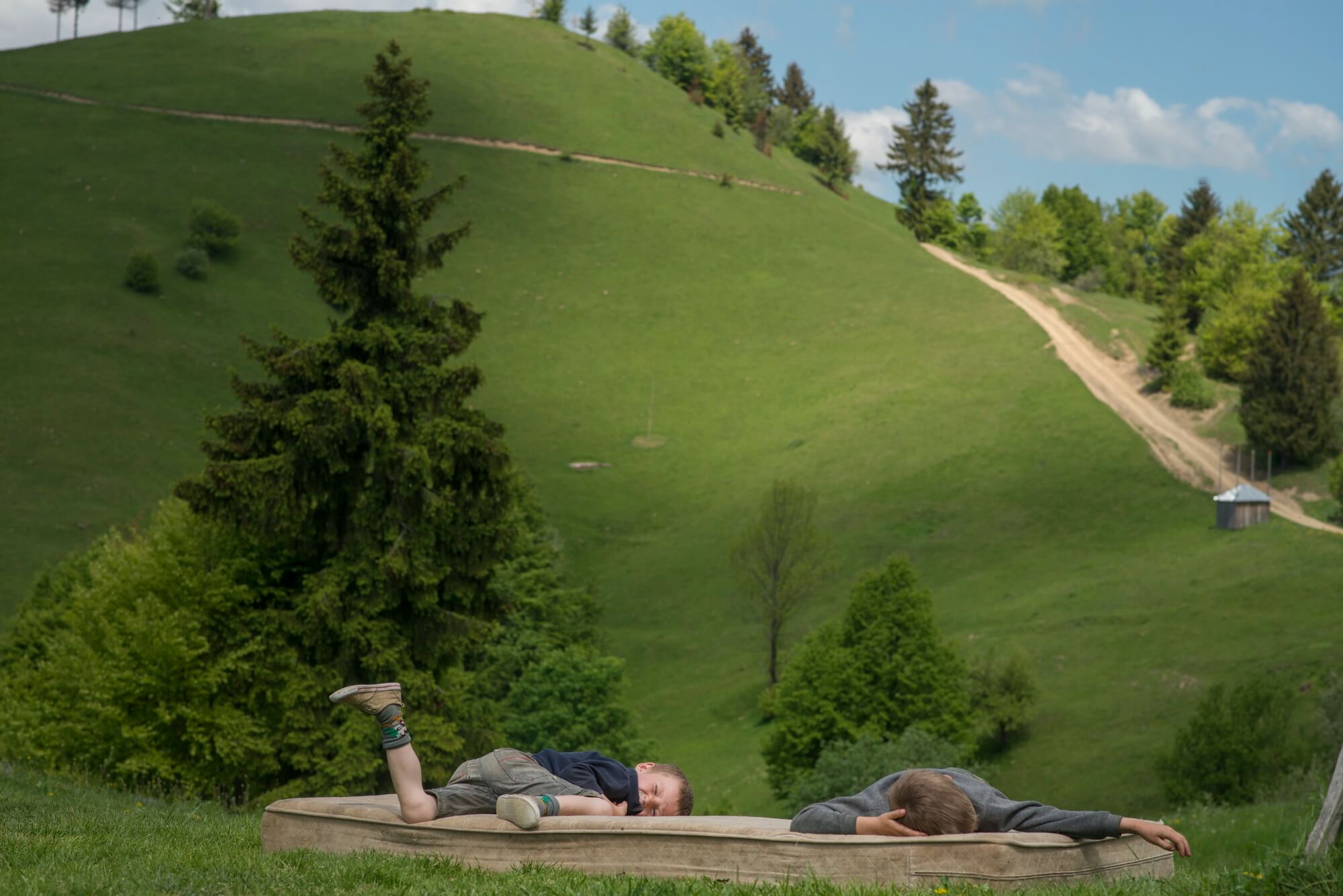
Copii la joacă.
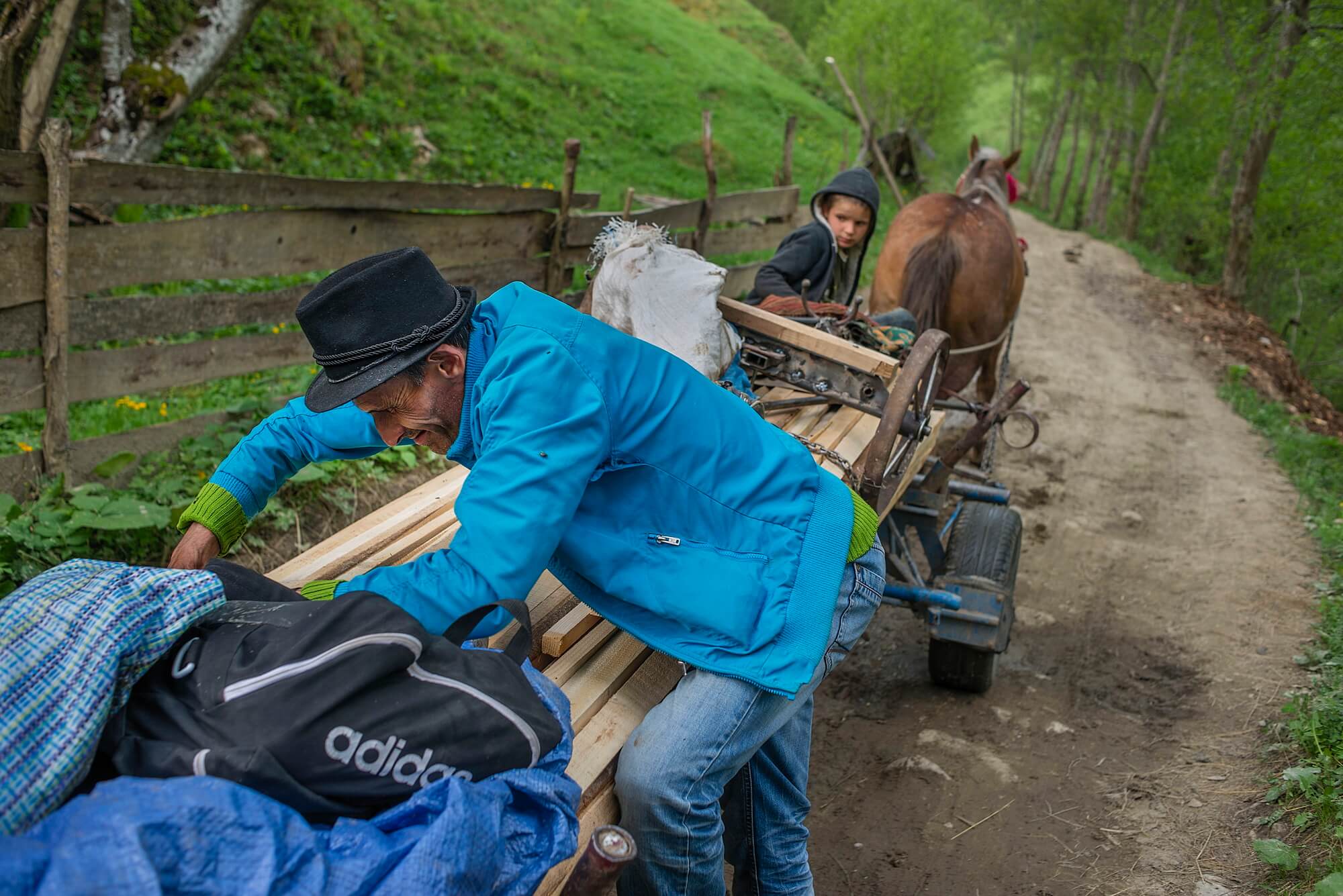
Biriș aranjează lemnele în căruta care se tot răstoarnă din cauza drumului prost
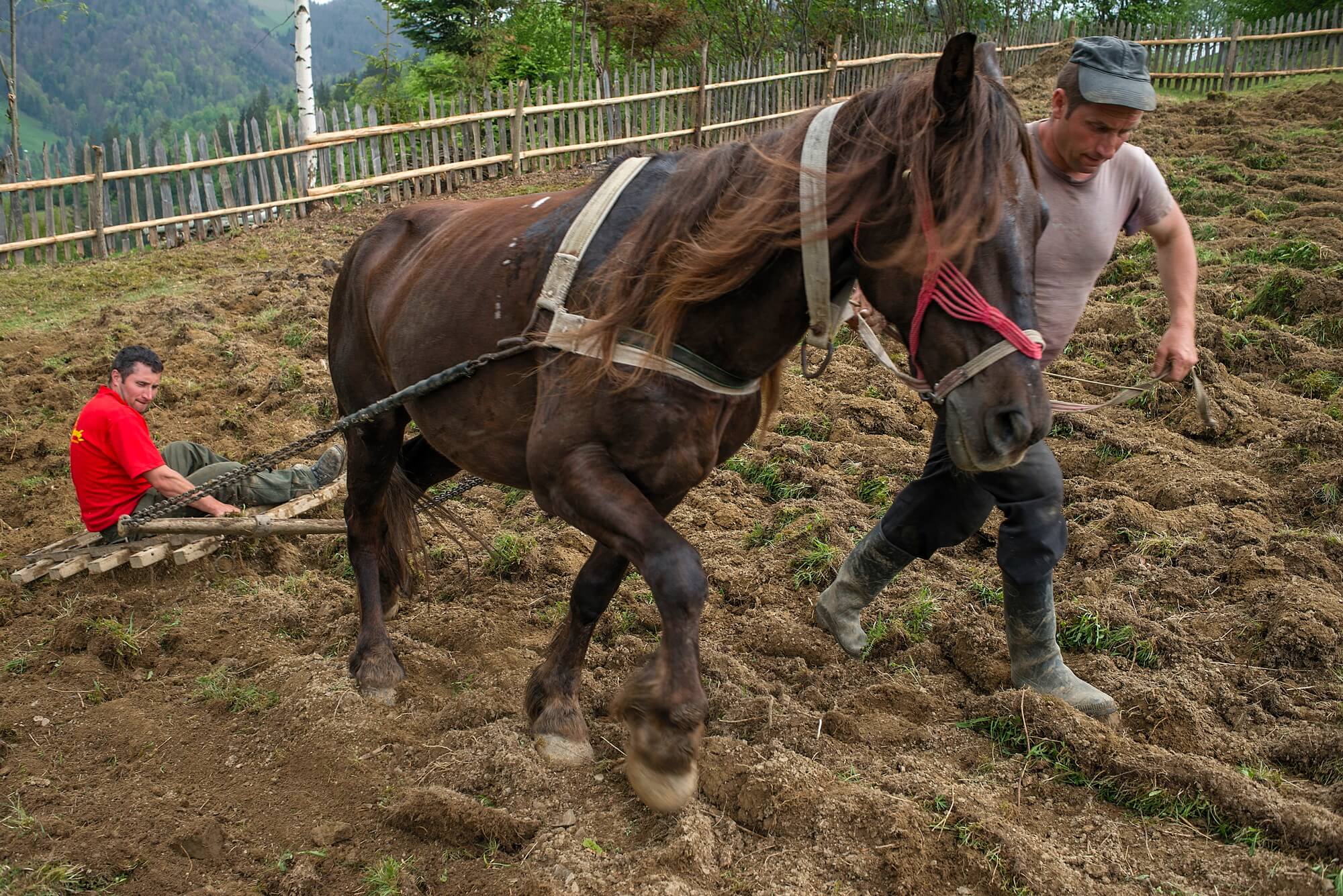
Frații Ghibuș, amândoi plecați în Anglia, se întorc regulat acasă pentru munca câmpului: semănat, arat, strâns fânul. Sunt operațiuni pe care le fac fără să ia în calcul cheltuielile financiare pe care le au cu traseul Poieni – Anglia. Fără ele, însă, nu ar putea ține animale.

Ana Ghibuș într-o mică pauză din munca grădinii.
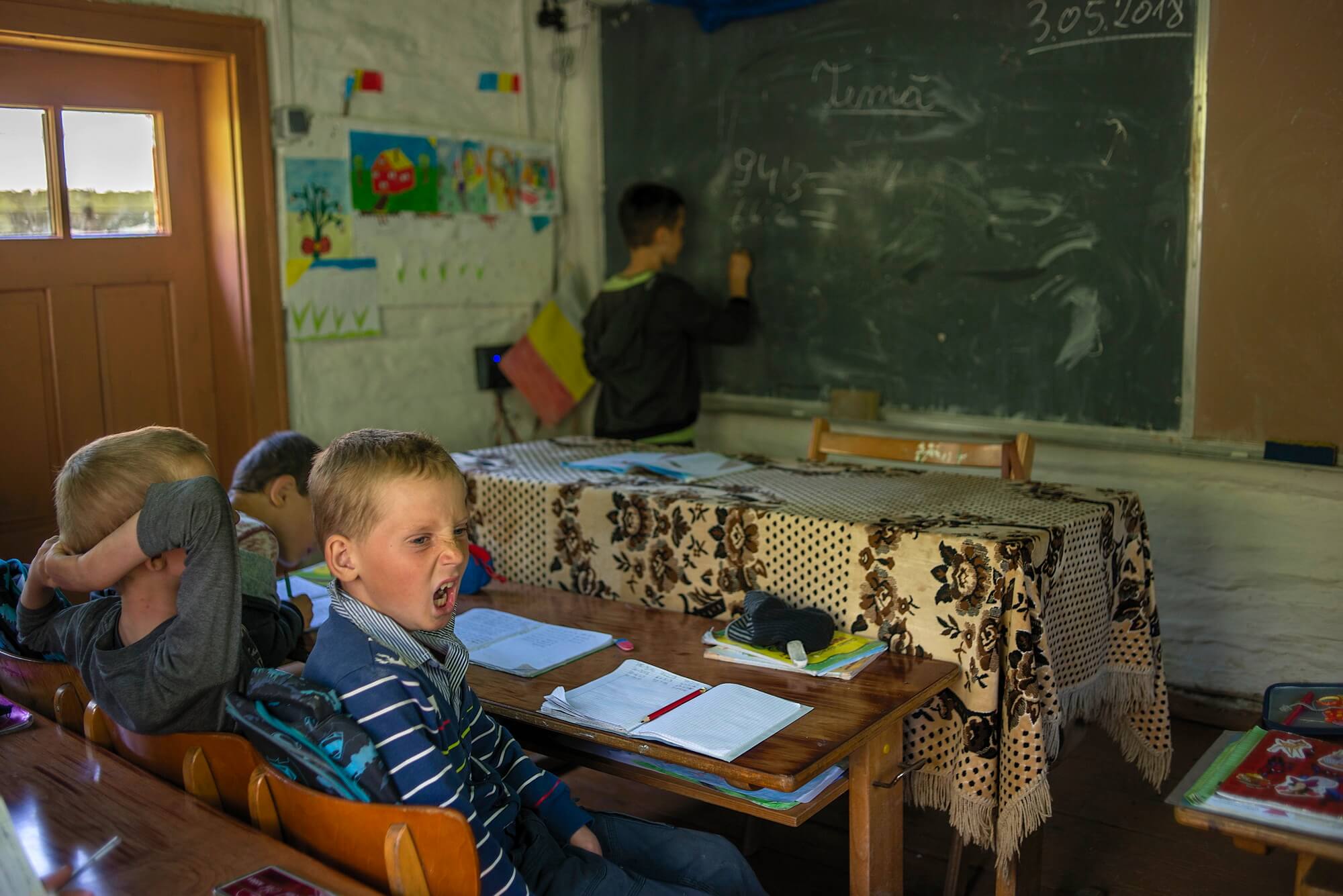
Școala I-IV are o singură clasă, amestecată. Copiii sunt mai tot timpul plictisiți, pentru că trebuie să asiste și la lecțiile care nu corespund clasei lor.
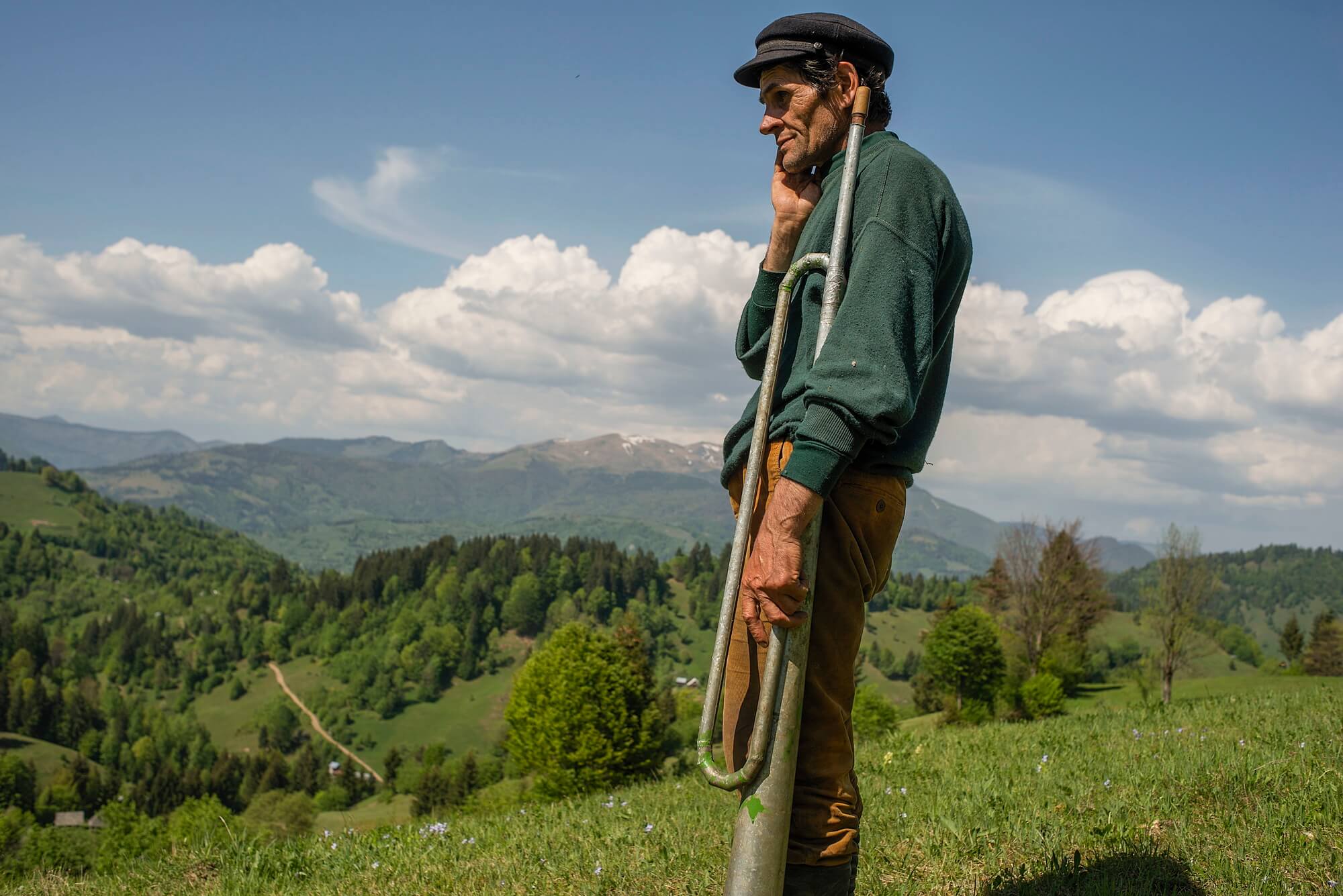
Longa Fedor și trâmbița lui ruginită, care încă mai suflă. Fedor e despărțit de nevasta lui, care a plecat cu altul, jos în Poieni. El a rămas cu animalele, sus. Câteodată, stă și cântă la trâmbiță, dar starea ei uzată îl necăjește.
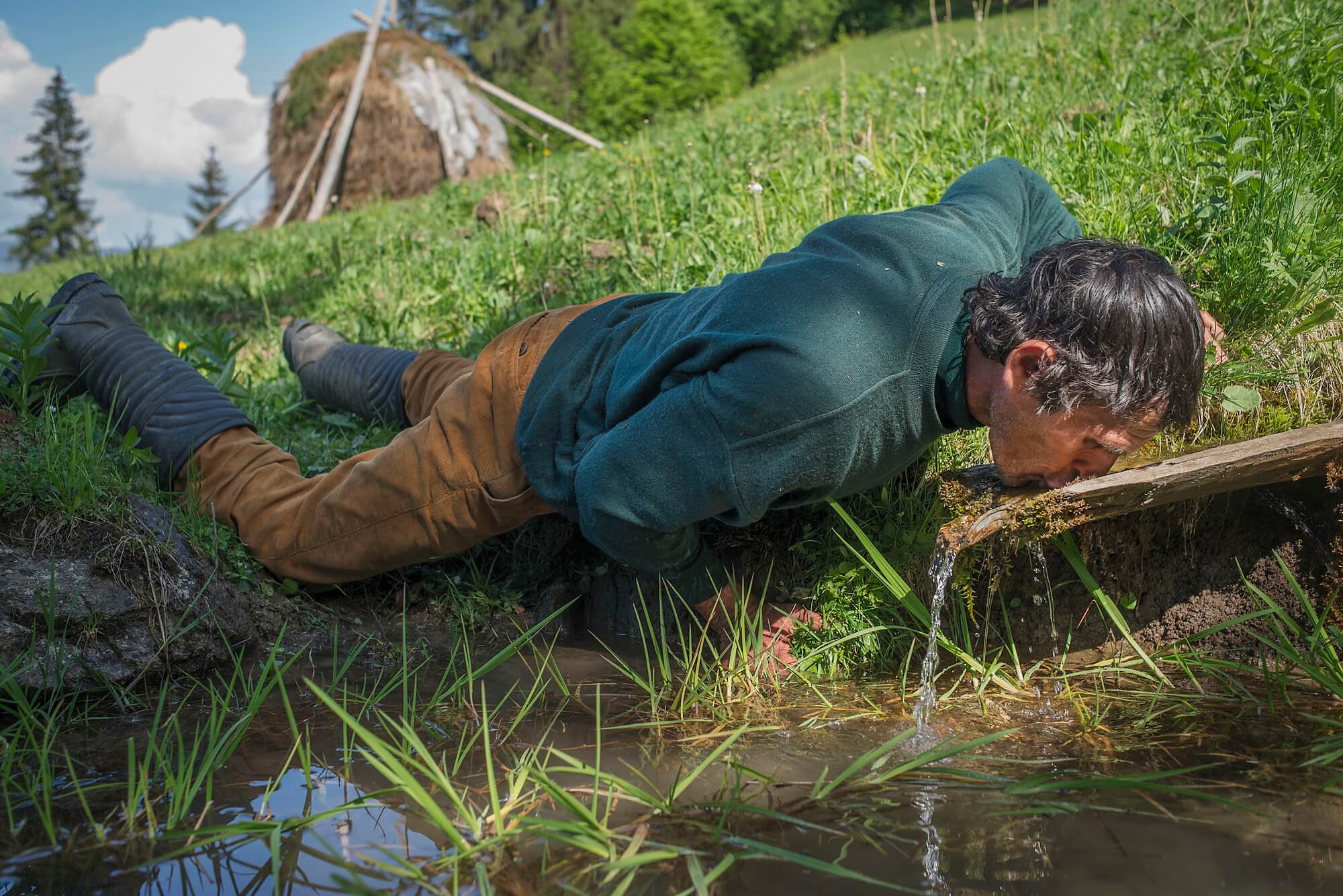
Fedor bea apă dintr-un izvor.
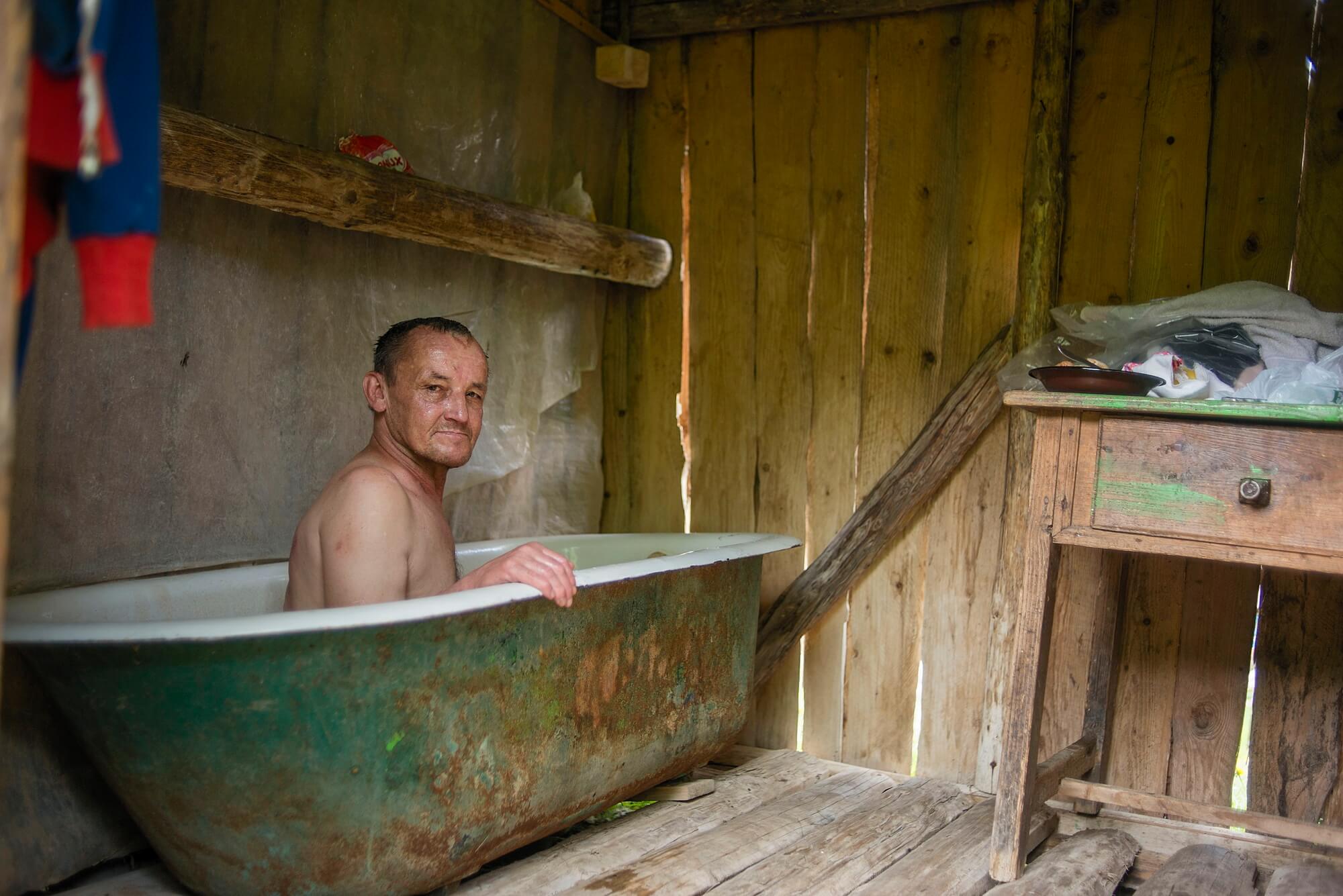
Vasile, de 56 de ani, face o baie într-o apă puternic mineralizată, ce se cheamă „borcut”. Ea izvorăște natural în curtea unui vecin, care a amenajat într-un fost grajd trei căzi, despărțite fiecare de un separeu. Costă 10 lei să îți încălzească apa și să o verse în vană. Dar pentru că majoritatea îi sunt prieteni, rar ia bani cuiva. Apa se presupune că ar avea puteri medicinale, iar acum Vasile speră ca mineralele și apa să îi ia mahmureala.
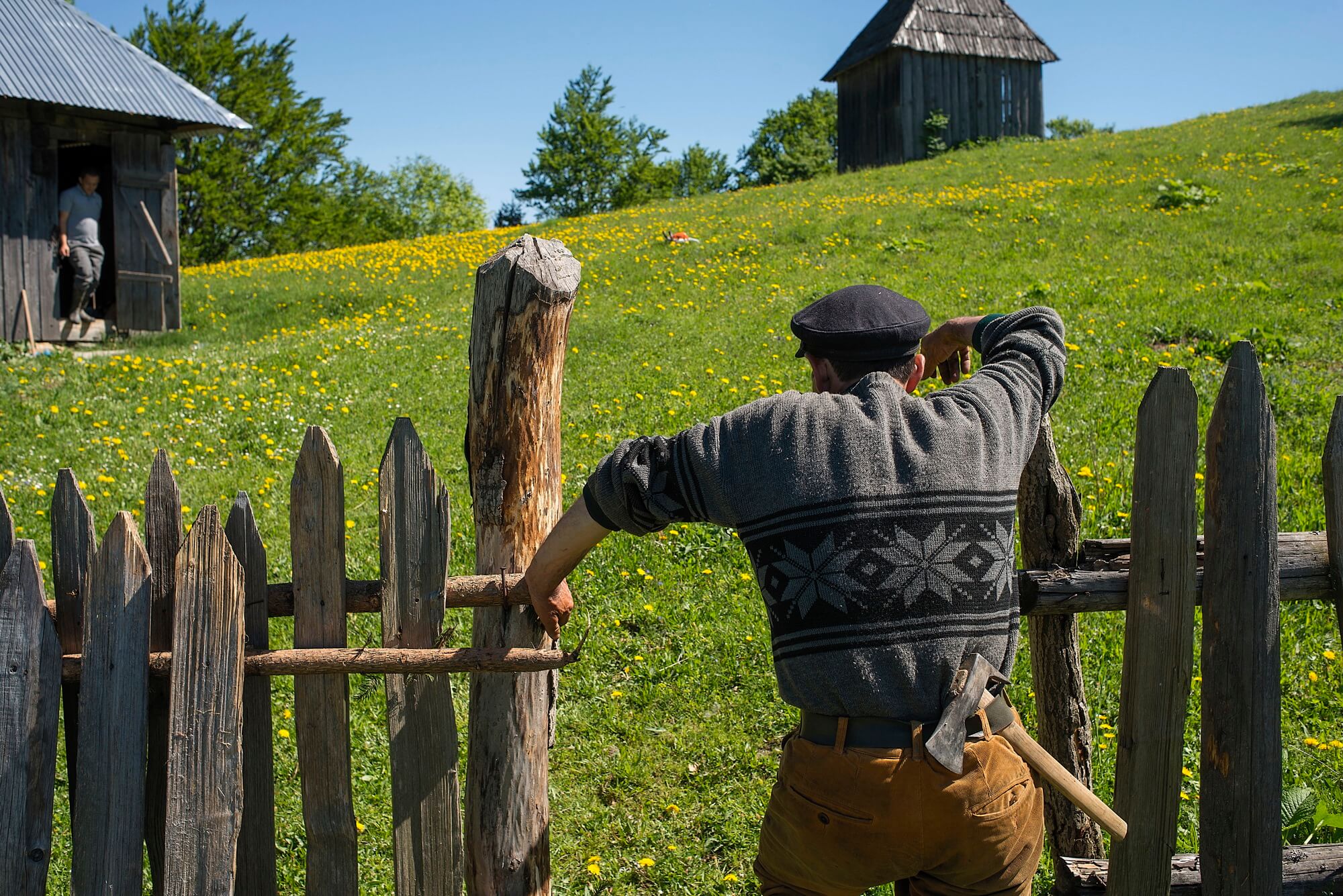
Discuție între vecini.
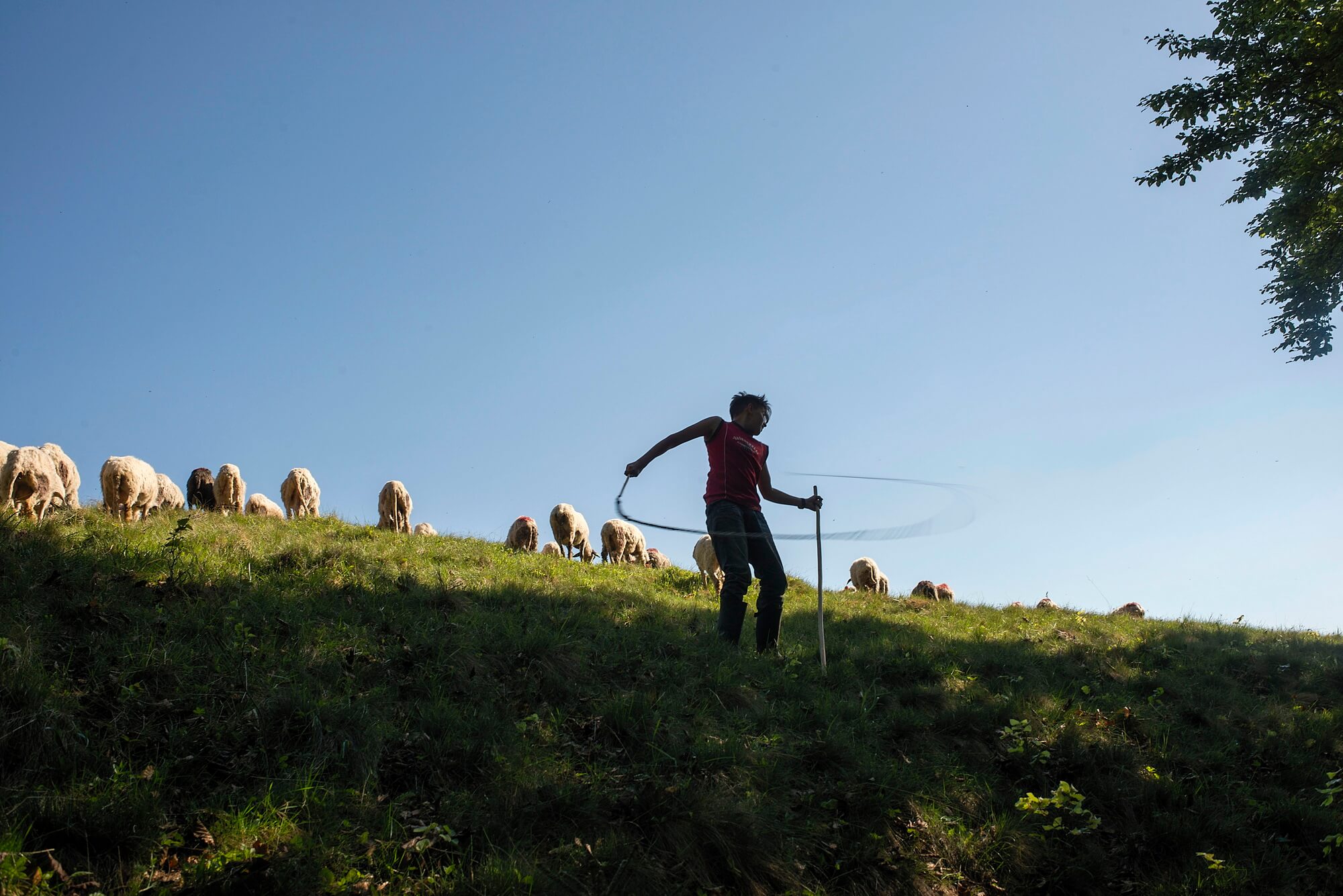
Cin Dumitru, de 13 ani, pocnește din bici pentru a mâna oile.
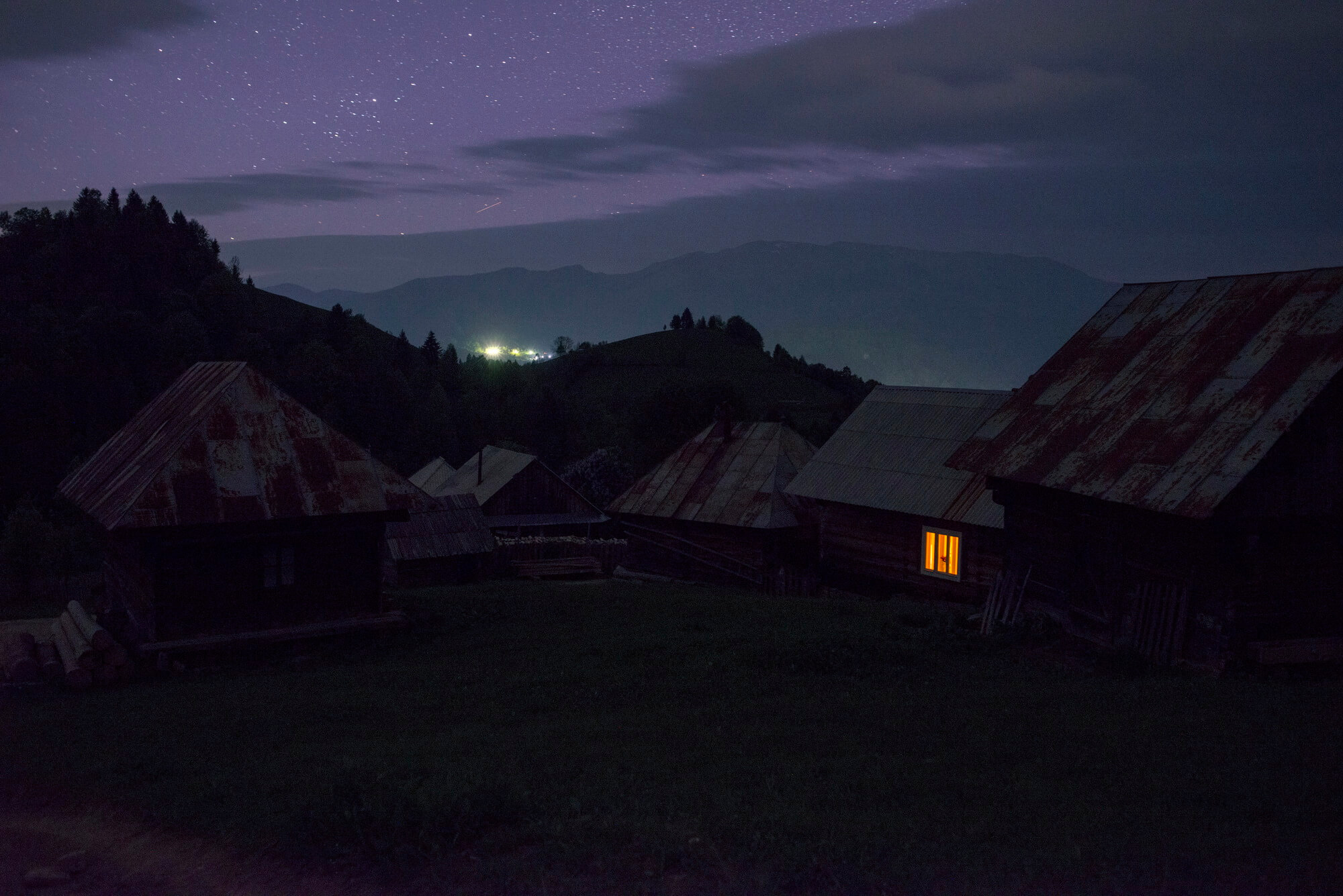
Noaptea se lasă peste cătun, iar în zare se văd luminile din Vișeul de Sus.
With a population of just over 10.000, Poienile de sub Munte is the largest village in Maramureș County, Romania. A recent census shows that, compared to the 2000s, the population has increased a little – while nationwide it is dropping, and rural areas are undergoing a constant depopulation. It only takes a visit to notice something unusual: The streets are full of people, there is a ceaseless coming and going. People carry, pull, run, push, ride, work or go around doing their daily business. It’s quite a few kilometres from the village centre to the outskirts, and even there, it’s still crowded. To the south there is the edge of Valea Cvasniței, where homes are crowded into each other on either side of a narrow street which sometimes can’t even fit a single car. That is where both phone signal and electricity stop. The houses go on into the mountains, some reachable by foot in ten minutes, others in one hour – assuming you walk with the mountain people’s long, heavy stride. Until a few years ago, the road was only accessible to horses and wagons. Recent works made it practicable for the sturdier SUVs as well. Suddenly, having a powerful car became a necessity for many. For a few years, the younger villagers have started to work abroad, but most of them are only away in season. They are too bound to the agricultural calendar to break away completely. In these photos, I followed a small community living in the hills around Poienile de sub Munte, a 30-60-minute walk from the village. This scattered settlement has no name and isn’t even on any map. Some call it Dârdila’s Hill, after the name of a former owner, but the young call it Facebook Hill. Here, in the tallest point of the area, you get 3G and Internet signal. It’s a place with a view, so people also come for a barbecue and, on weekends, post photos of young people having fun. Many of them also have houses down in the village, but there’s no room for a garden or animals there. That is why many of them prefer to live up here, despite the hardships. Here you can keep many cows and grow onions and potatoes – not much else can be cultivated in this soil – fighting the boars for every patch of cultivated land, which needs to be surrounded with empty beer cans and tins strung on wire fences, rattling in the wind or at any touch, to keep wild animals at bay. I’ve never heard anyone complain about life here, though conditions are almost primitive. It’s so beautiful in these hills that people don’t seem to have had their fill of the view yet. For the younger locals, things are starting to change. Now that the road leading up to the top is more or less practicable, they’d need SUVs, but one costs several thousand euro. Something, anything, with the steering wheel on the right since those are cheaper, as long as it can navigate the tough roads. No one makes money here – work is strictly for survival. So, over the last few years, they’ve started to go work abroad seasonally, mostly in the UK, in construction and greenhouses, picking produce. It is hard to believe their children will continue to live as their parents have been. Cin Dumitru, 13, who spends most of his time up at the sheepfold with his father, tells me he’d like to become a border guard. Or anything else, as long as he gets to drive an SUV. The story has no narrative thread, other than the normal flow of life in a small isolated community. I will continue to go there in the following years, to observe the changes in its midst.
De la o simplă vizită prin zonă observi ceva neobișnuit: străzi sunt pline de oameni, e o continuă vânzoleală. Lumea cară, trage, aleargă, împinge, călărește, muncește sau merge cu treabă de colo – colo. Din centru mergi câțiva kilometri buni către margine și tot aglomerat e. Spre sud începe Valea Cvasniței, unde casele sunt înghesuite și pe stânga și pe dreapta, de-a lungul unui drum îngust pe care la un moment dat nici măcar o mașină nu mai încape. De aici dispare și semnalul de telefon, și curentul electric. Casele continuă în munte, unele la 10 minute de mers, altele la jumătate de ora, altele la o oră de mers apăsat, de muntean.
Drumul a fost accesibil până acum câțiva ani doar cailor și căruțelor. Lucrări recente au făcut posibil și accesul mașinilor de teren mai robuste. Brusc, a avea o mașină performantă a devenit o necesitate pentru mulți. De câțiva ani de zile tinerii au început să plece la muncă afară, dar majoritatea doar sezonier. Sunt prea legați de calendarul agricol ca să se rupă complet.
În fotografiile de față am urmărit o mică comunitate ce trăiește pe dealurile de lângă Poienile de sub Munte, la o distanță de 30 – 60 de minute de mers pe jos. Cătunul nu are nume și nici nu e menționat pe hartă. Unii îi zic „Dealul lui Dârdila”, după numele unui fost proprietar, dar cei tineri îi zic „Dealul cu Facebook”. Aici, în cel mai înalt punct al zonei, prinzi semnal 3G și conexiune la net. E un loc cu belvedere, se mai vine și la gratar, de aici se postează în weekend poze cu tineri distrându-se. Mulți dintre ei au case și jos, în comună, dar acolo nu este loc pentru grădină sau animale. De aceea, mulți dintre ei preferă locul de sus, în ciuda tuturor greutăților. Aici poți ține multe vaci, își pun ceapă și cartofi, că altceva nu prea crește, se luptă cu mistreții pentru fiecare petec plantat, înconjurându-l cu cutii de bere goale și conserve pe garduri de sârmă, ce zornăie la adierea vântului sau la mișcare, pentru a ține la distanță animalele sălbatice.
Nu am auzit pe nimeni plângându-se de viața de aici, chiar dacă condițiile sunt aproape primitive. E atât de frumos pe dealurile astea, încât oamenii par încă să nu se fi săturat de priveliște. Pentru cei mai tineri, lucrurile încep să se schimbe. Azi, o dată ce drumul până sus e cât de cât făcut, le-ar trebui un SUV, care costă câteva mii de euro. Ceva, orice, cu volanul pe dreapta, că-s mai ieftine, dar să țină pe drumuri grele. Bani nu câștigă nimeni aici, toată munca este strict pentru supraviețuire. Așa că, de câțiva ani, au început să plece sezonier în Anglia, mai ales; în construcții și la sere, la cules de diverse. E greu de crezut că cei mici vor continua să facă ce au făcut părinții lor. Cin Dumitru, de 13 ani, care stă la stână cu tatăl său, îmi spune că ar vrea să se facă grănicer. Sau orice altceva, dar să conducă un SUV.
Povestea nu are niciun fir narativ, altul decât mersul firesc al treburilor într-o mică comunitate izolată. Voi continua să merg în anii care urmează, pentru a observa schimbările ce vor apărea în cadrul acestei mici comunități izolate.

